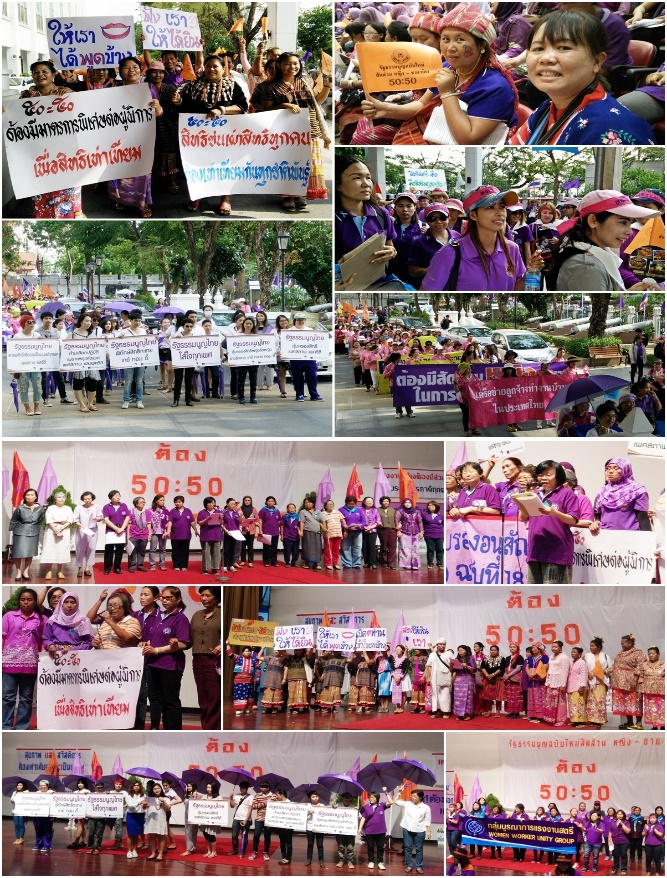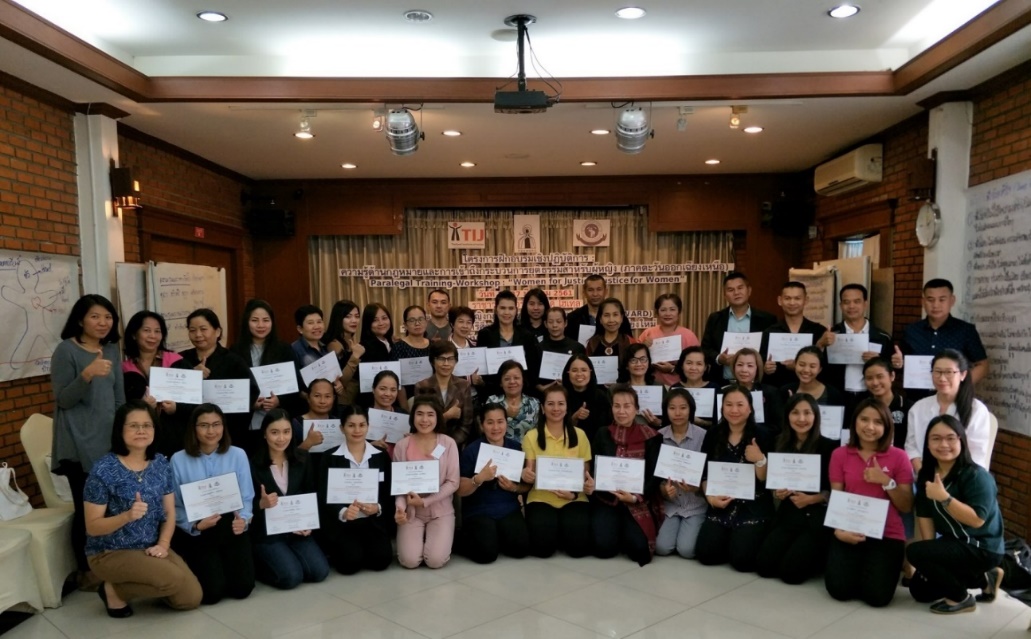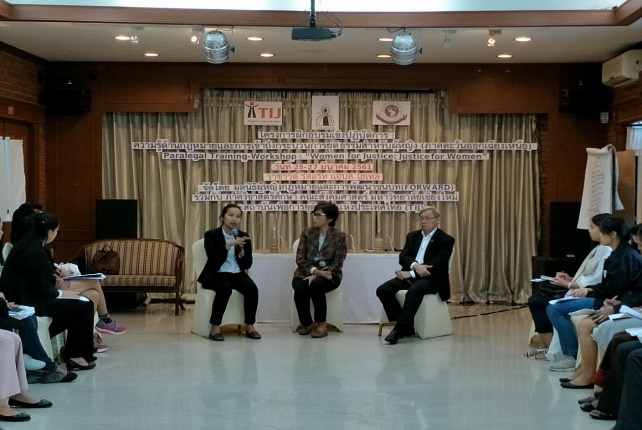Since 1991, CMU’s Center for Women Studies, Faculty of Social Sciences, is operating the “Legal Volunteer Training Project for Northern Rural Women,” in collaboration with the Women Foundation Law and Rural Development, to support gender equality. This training aims to foster a link between legal knowledge and feminist perspectives to help empower women of all classes and races to be enabled to have a voice in policy-making.
The main objective of the “Volunteer Training for Women in the Northern Rural Areas” program is to raise the capacity of local women. The law can be used as a tool to combat gender social inequalities, motivate local women and boost their engagement in government structures at all levels. Women’s perspectives needs to be incorporated into policy making to meet the needs and interests of women, and to help lead them in a good social direction.
Legal Volunteer Training Program for Rural Women 17 provinces of Northern Thailand
Currently there are 178 trained law volunteers, many of whom have become nationally recognized community leaders. One has been elected senator while the legal volunteers that continue to work in local politics are dedicated to improving the lives and welfare of women in their communities. Training programs often begin with teaching women law and skill enhancements that allow them to generate extra income. These activities are therefore a tool for women to protect themselves from being exploited in daily life. In addition to the law volunteers, the trainees play an important role in community leadership, for example, in organizing the “Support Center for Women and Children” which serves to coordinate and assist women who suffer from social exploitation and /or violence.
Research is promoted as a core component of the operations as the information and knowledge gained from this research can be used to implement policies. Recent research on the "Experience with Accessibility to Justice for Ethnic Women" by the Law Reform Commission has enabled a proposal to improve and develop laws on gender equality and increase judicial access among ethnic women.
Research: "Experiences with access to justice among ethnic women, “under the operation of The Committee to Revise and Develop the Law on Gender Equality in the Law Reform Committee.
On the occasion of International Women's Day (8 March) and End of Violence Against Women Day (25 November) of each year, various training programs in law and justice are launched. This year academic talks and a presentation on "The demands of women to end violence” was given by a representative of the Women's Network which has now expanded its network to cover the LGBT community Groups with disabilities.
March 8, International Women's Day

March 8, International Women's Day
25 November, Day to end violence against women
During 2017 to 2018, the CMU’s Department of Women Studies, Faculty of Social Sciences, in collaboration with the Women's Foundation Law and Rural Development and the Institute for Justice of Thailand have organized workshops on, "Legal Knowledge and Access to Justice for Women," and was focused on potential female leaders who aimed to create positive change. These women could become legal assistants/ advisers (paralegal) focusing on understanding the mechanism of justice and the essential laws and could be a vital force in protecting and pushing for justice that produces results in the community. Networking was encouraged between the trainees and with the other justice organizations. The training included women in four regions: North, Central, Northeast, and the South, and the women were selected based on who shall lead and assist in the community, including developers, social workers, emergency housing staff, women rights campaigners, lawyers and inquiry workers.

Paralegal Training Workshop: "Women for Justice; Justice for Women"

Paralegal Training Workshop: "Women for Justice; Justice for Women"
Women are often at a disadvantage due to the existing social and educational inequalities and discrimination. The operation of the CMU Women's Education Center is one way to empower women to receive more equitable justice, as well as creating change agents, enabling women to strengthen themselves. Women can help others in the community and society, by disseminating knowledge and understanding on the judicial process in the network. Those who work in the legal system are also encouraged to be educated on women's rights and help them in society, to be able to advise them on various processes.
This is an ongoing effort for people to join forces to transform women's rights and gender equality in accessing legal and judicial knowledge at Chiang Mai University. The Center for Women Studies has continuously supported this goal in line with the United Nations Sustainable Development Goals (SDG) 5: Achieve gender equality and empower all women and girls; to enhance justice and women’s rights in Thailand which will lead to sustainable social development.
Source: Center for Women Studies, Faculty of Social Sciences, Chiang Mai University